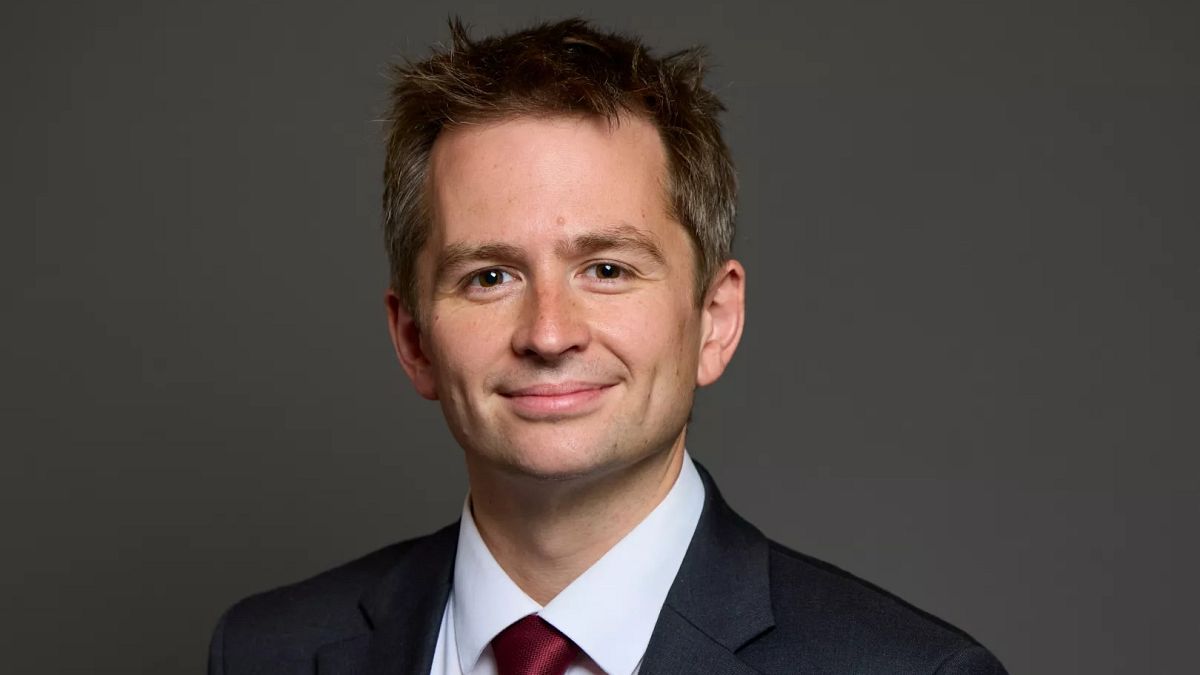Published on
06/08/2025 – 14:56 GMT+2
ADVERTISEMENT
Imagine being able to corral your local politician and grill them about their views, anytime you fancy – no appointments, no red tape.
That’s exactly what one British Member of Parliament has set out to achieve.
Mark Sewards, a Labour Party politician who represents Leeds South West and Morley, has unveiled an artificial intelligence (AI) clone of himself that is designed to answer questions and assist with constituents’ queries around the clock.
“I’m very keen to explore how new technologies, such as AI, can help strengthen the connection between an MP’s office and the constituents we serve,” Sewards said in a statement.
He encouraged his constituents to “give AI Mark a try” – but noted in an Instagram post that the tool isn’t designed to replace his official duties.
Rather, the idea is to provide a 24/7 service where constituents can raise local issues, ask about policy matters, or drop a message to their MP’s office without waiting weeks for a formal reply.
The bot “simply gives people another option to contact me, any time of day,” Sewards wrote.
How a tech firm cloned Sewards
The Leeds-based startup Neural Voice developed Seward’s AI twin, dubbing him the “UK’s first virtual MP”.
The company says it uses cutting-edge neural voice synthesis and advanced natural language processing to help create voice AI assistants for phone systems and websites.
It used voice recordings of Sewards in parliamentary sessions, social media profiles, and previous correspondences with constituents to create a digital double that mirrors his speaking style, tone, and mannerisms with uncanny accuracy, the company said.
It hopes the new technology will make local politicians more accessible to their constituents.
“For too long, politicians have been out of reach for their constituents,” said Jeremy Smith, Neural Voice’s CEO and co-founder.
“The vast majority of people do not know the name of their MP, let alone their voice and what they stand for,” Smith added.
He believes this technology could soon become par for the course, with other MPs and even businesses potentially following suit in a bid to bridge the communication gap.
Digital doubles in politics and business
AI is increasingly being deployed in public-facing roles to overcome physical barriers and create constant feedback loops.
Last year, the mayor of a Japanese city, Yokosuka, created an AI avatar of himself to improve communication with the thousands of English-speaking US Naval personnel based there.
Meanwhile, a political outfit in Denmark called the Synthetic Party created an AI candidate called “Leader Lars” to stand in the country’s 2022 elections, though the party did not win votes.
The AI model, which the party says was fed with material from fringe political parties in Denmark dating back to 1970, was designed to engage with citizens who typically do not vote and to demonstrate AI’s role in democracy.
Companies in Poland and China have also experimented with having AI CEOs front their brands.
Yet such tools can be repurposed to impersonate public figures without their approval, or to generate convincing fake personas that appear to be real public figures.
High-profile deepfake scams have targeted Italian defense minister Guido Crosetto, US Secretary of State Marco Rubio, and several celebrities, including Taylor Swift and Joe Rogan, whose voices were used to promote a scam that promised people government funds.
Deepfakes were created every five minutes in 2024, according to a report from think tank Entrust Cybersecurity Institute.
Whether a digital doppelgänger can truly replace an in-person chat with a public figure remains to be seen, but back in the United Kingdom, Sewards believes it will be at least one promising option.
“The AI revolution is happening and we must embrace it or be left behind,” he said on the social media platform X.


